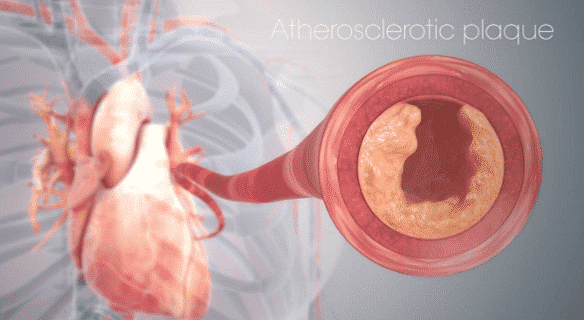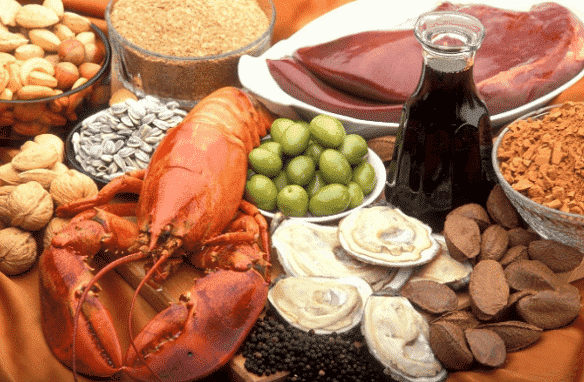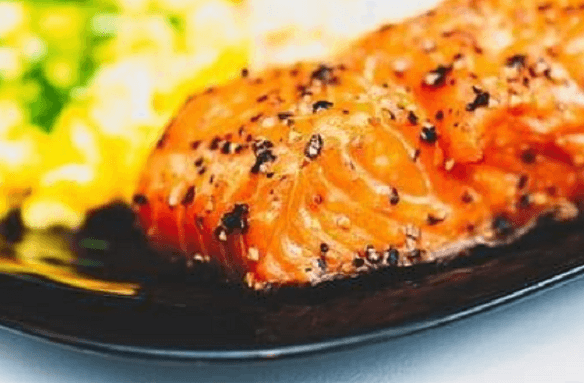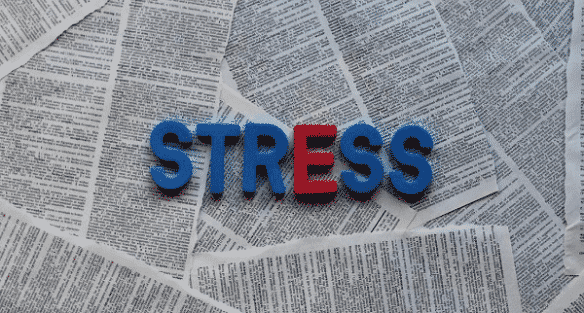Did you know that 2 out of 3 people are obese or overweight?
Belly fat is also known as pot belly or abdominal obesity or adiposity increases the chances of chronic diseases such as type 2 diabetes, cancer, and heart disease – the world’s deadliest disease.
Fortunately, there a few tips & tricks which can help you reduce belly fat fast. Below are the 10 best ways to prevent and reduce belly fat:
Having excessive weight is harmful, but having excessive BELLY FAT is even more dangerous. People who have extra belly fat have double the risk of dying prematurely. There a few tips & tricks which can help you reduce belly fat fast. Below are the 10 best ways to prevent and reduce belly fat:
- Eat protein-rich food
- Eat plenty of soluble fiber
- Eat omega 3 fatty acid-rich foods
- Avoid trans-fat foods
- Belly Fat and Alcohol
- Lifestyle Changes for Losing Belly Fat
- Cut back on carbs
- Exercise regularly
- Decrease stress
- Get Sufficient Sleep
In today’s blog, you’ll learn how to reduce belly fat and how to prevent it. You’ll learn:
- What is belly fat?
- How much belly fat is normal?
- What belly fat depicts in terms of the dangerous visceral fat?
- Belly fat problems: Dangers that can be avoided
- What causes belly fat
- Best ways to lose belly fat fast
What Is Belly Fat?
Fat is important for our bodies. It keeps us warm, protects vital organs, and gives your body energy. Although it’s healthy to have some body fat, not all fats are equal.
There are two types of fat in your belly:
- Subcutaneous fat – lies directly below the skin. It’s between the skin and the abdomen wall.
- Visceral fat – commonly known as a dangerous fat. It’s located deep in your belly.
How Much Belly Fat Is Normal?
If you have some belly fat, it doesn’t necessarily mean that you have a lot of visceral fat. However, when you have more than a normal percentage of fat and apple-shaped figure, you should do something about it.
Having 18% – 22% of fat for men and 26% – 31% is considered normal. Anything above means you have excessive fat in your body.
What belly fat depicts in terms of the dangerous visceral fat?
The most accurate way to measure visceral fat is with a CT or MRI scan. However, it’s very expensive and time-consuming. There’s also a cheaper, faster, and a little less accurate way.
To know if you’re at risk try measuring your waist size. It may be not as accurate, but can be a good pointer. There’re different numbers for women and men.
- If you’re a woman and your waist is 35 inches or larger, you’re at risk
- If you’re a man and your waist is 40 inches or larger, you’re at risk
Visceral fat is evaluated in scale from 1 – 59 when diagnosed with an MRI scan. Healthy levels are under 13. If your results are 13 or more, immediate action is required.
Belly Fat Problems: Dangers that can be avoided
Having too much fat makes you look worse. However, this is the least problem with excessive fat. Having a high-fat percentage, especially visceral fat puts you in danger of getting deadly diseases. These include:
- Heart attack & heart disease
- Type 2 diabetes
- Breast cancer
- Alzheimer’s disease
- Stroke
These are some of the deadliest diseases causing premature deaths of millions worldwide. When you have a lot of abdominal fat, your organs are covered by fat.
This leads to improper function of organs, such as lowering insulin sensitivity in the liver. It also increases the clogging up of arteries and leads to heart problems.
The worst part is, the more weight you gain, and the more fat you have, the higher the chances of getting them. It’s very important to lose belly fat and keep in shape to stay healthy and live a longer life.
What Causes Belly Fat?
Whether you want to look and feel better or just avoid complications, keeping a normal belly fat percentage is key. There’re a few things you should limit or avoid to keep your belly fat at normal. These include:
- Poor diet – The most important factor is your diet. An unhealthy diet can cause weight gain, slow metabolism, and reduce fat burning.
- Lack of physical activity – The concept of losing fat is simple. You need to burn more calories than you eat. However, if your energy intake through diet is over and above your metabolic needs and your activity level, you add up calories and store them in the form of fat. This leads to weight gain.
- Poor sleep – Sleep resets the stress hormones which aggravate when we are awake and recovers our bodies. These hormones also play a role in weight gain and belly fat. Insufficient sleep decreases the quality of your life and makes you unhappy. This may lead to emotional eating and belly fat.
- Smoking – Although the percentage of obesity in smokers and non-smokers is the same, smokers have more belly and visceral fat. Even though it’s not a direct cause, it’s a risk factor you should consider.
- Stress – Cortisol is a hormone, which helps your body deal with stress. Unfortunately, it also slows down your metabolism. People in stress are more likely to reach for food to comfort their needs. This leads to more belly fat and weight gain.
These are common causes of many complications. The key to losing belly fat is to live a healthy and enjoyable life.
All of these tips may be helpful but won’t help you that much. If you want to lose belly fat or prevent it, you must consult it with your doctor or your dietitian. Building a diet plan for belly fat loss and implementing lifestyle changes can make all the difference.
Best Ways to Lose Belly Fat Fast
There’re many ways to burn belly fat, which you’ll learn more about in the next sections. However, it’s important to remember that you shouldn’t rush it.
Losing belly fat is a long-term process, not a few days’ quick-fix solution. Find the balance between things below, set realistic goals and lose belly fat.
How to Burn Belly Fat with Diet
Your diet plays the most important role in losing belly fat. It accounts for 80% of all weight loss. No matter how much you exercise, when your diet isn’t right, you won’t burn fat and your hard work in exercise is most likely to fail. The most important thing in any weight loss diet is to ensure optimal nutrition along with a deficit in calories. A well planned personalized diet with adequate vitamins, minerals, and macronutrients is key to a healthy weight loss. However, there’re also a few belly fat burning foods you should include. On the other hand, some cause belly fat. These you should limit or avoid.
The most important thing in any weight loss diet is to ensure optimal nutrition along with a deficit in calories. A well planned personalised diet with adequate vitamins, minerals, and macronutrients is key to a healthy weight loss.
Which Are Belly Fat Burning Foods?
Some foods can make you feel full for longer and boost your metabolism. These are key for losing belly fat and having an enjoyable weight loss journey.
1. Protein-rich Foods
Protein is one of the most important nutrients for burning fat and weight loss. This is because it releases the fullness hormone, which decreases your appetite and promotes fullness. It’s also great for boosting your metabolism and to retain muscles while losing weight. But it’s especially good for belly fat. People who eat more protein have less belly fat and lower risk of cardiovascular disease. Add high-protein foods to your diet such as:
- Meat
- Fish
- Eggs
2. Eat Plenty of Soluble Fiber
Soluble fiber makes you feel full longer and decreases the number of calories your body absorbs from food. This is because of the gel produced by soluble fiber. When you get enough soluble fiber from the diet, it absorbs water and forms a gel. This gel slows down the food as it passes through your digestive system making you feel full longer. What’s even better is, that soluble fiber is especially good for belly fat. Every 10-gram increase in soluble fiber decreased belly fat gain by 3.7% over 5 years (1). Make an effort to include high fiber foods in your diet like:
- Avocado
- Blackberries
- Flax seeds
3. Eat Omega 3 Fatty Acid Rich Foods
Omega 3 Fatty Acid rich foods are superbly healthy. Nuts or fatty fish contain omega-3 fatty acids, protein, and can protect you from many diseases. However, they are also great for losing abdomen fat, especially visceral fat. They help you reduce fat around vital organs and that way decreases the chances of severe health complications. Try to get your dose of omega 3 fatty acids by including the following foods, these can be:
- Salmon
- Sardines
- Mackerel
- Flaxseeds
- Chia seeds
- Walnuts
- Soybeans
- Hemp seeds
Which Foods Cause Belly Fat?
There’re certain foods you should minimize and avoid as much as possible. Most of these are not just full of fat, but they also increase your chances of getting deadly diseases. Foods that cause belly fat are listed below.
4. Foods That Contain Trans Fats
Try to avoid or minimize your intake of trans fats. They’re very unhealthy. They’ve been linked with inflammation, insulin resistance, heart disease, and abdominal fat (2) (3). People who ate trans fats gained 33% more belly fat than those who consumed monounsaturated fats. Try to replace trans fats with monounsaturated fats and avoid unhealthy foods that contain saturated fats such as:
- Burger
- French fries
- Popcorn
5. Belly Fat and Alcohol
We all like to party or have a drink from time to time. While drinking alcohol in small amounts may be beneficial, frequent drinking can be severely harmful. It increases not only your chances of getting health complications, but it also makes you obese. Too much drinking causes belly fat and may lead to obesity (4). Try to cut back on your alcohol and drink only occasionally. That way you stay healthy and lose belly fat.
6. Cut Back on Carbs
Following a low-carb diet or decreasing your carb intake can be very beneficial for losing fat. However, you don’t need to cut back on carbs completely, nor follow a low-carb diet. Just try to replace refined carbs with unprocessed starchy carbs. Whole grains can be a good source for that. Eating whole grains has been linked with a 17% lower chance of having excess abdominal fat. Replace carbs with unprocessed starchy, add whole grains to your diet, and decrease your belly fat.
7. Lifestyle Changes for Losing Belly Fat
Diet is the most important thing to lose belly fat. However, you shouldn’t overlook exercise and lifestyle changes. They play a crucial contributory role too. These lifestyle changes can prolong your life, make you feel better, and help you stay mobile for longer. They can significantly increase the quality of your life while burning excess belly fat.
8. Belly Fat Loss & Exercise
Regular physical activity brings a lot of benefits. One of them is losing belly fat. Cardio is one of the most effective types of exercise for losing weight. However, cardio mixed with resistance training brings the biggest results. It also makes sure that you don’t become skinny fat. Skinny fat means normal weight, little muscles, and too much fat. Try to incorporate exercise into your daily schedule and exercise regularly. Remember, the duration and frequency of exercise are more important than intensity.
9. Belly Fat Loss & Stress
Stress is one of the causes of belly fat. When you’re under stress, your body releases stress hormone – cortisol. High cortisol levels lead to increased appetite and drive abdominal fat storage. What’s even worse is that women with a large waist produce more cortisol in response to stress. This adds even more belly fat around the middle (5). Try reducing stress in your life. Balance your work and free time, participate in fun activities, or practice yoga.
10. Get Sufficient Sleep
Without sleep, we would be all dead. Sleep can drastically affect your life. Getting enough and high-quality sleep can make you feel energized and happy. However, having insufficient sleep may lead to severe complications and depression. The surprising fact is that sleep affects your belly fat too. People who sleep less than 5 hours are significantly more likely to gain weight than those sleeping 7 hours (6). In addition, sleeping 7+ hours ensure you’re getting enough sleep for you to stay healthy. Having a regular sleeping schedule, sleeping for at least 7+ hours, and waking up at the same time can play a role in staying in shape and being healthy.
Belly Fat & Fatty Liver
Fatty liver is becoming more and more common. This is due to rising rates of obese and overweight people. Now, more than 25% of people suffer from fatty liver globally. The liver is the biggest organ in your body and is used to help digest food, store energy and remove poisons like alcohol. However, when there’s too much fat inside it, it may not function properly. Your liver is considered fatty when more than 5% of it is fat. There’re many causes, which may lead to fatty liver. The most common ones are alcohol, obesity, and excess belly fat. However, even if you’re not obese, but have excess belly fat, you’re at risk. Fatty liver has 4 main stages, with the last, most severe – cirrhosis. When you leave it untreated, it may potentially be life-threatening and lead to liver failure. Unfortunately, there’re no medications for belly fat. However, you can treat it naturally! Stop overeating and sitting all day. Start moving, eating healthy, and exercising. That way you lose fat, most importantly visceral fat, and decrease the fat inside the liver. This may lead to the complete curing of fatty liver.
Conclusion:
Fat is essential for our well-being. It keeps us warm, gives energy to our body, and protects vital organs. However, excessive amounts of it may be very harmful, especially deep fat – visceral fat in your belly. This type of fat clogs up arteries and covers your organs, which can lead to problems such as decreasing insulin sensitivity. These problems may develop to complications such as heart disease, stroke, type 2 diabetes, or cancer – the deadliest diseases. Fortunately, there a few tips & tricks which can help you reduce belly fat fast. Below are the 10 best ways to prevent and reduce belly fat:
- Eat protein-rich food
- Eat plenty of soluble fiber
- Eat omega 3 fatty acid-rich foods
- Avoid trans-fat foods
- Belly Fat and Alcohol
- Lifestyle Changes for Losing Belly Fat
- Cut back on carbs
- Exercise regularly
- Decrease stress
- Get Sufficient Sleep
All of these tips may be helpful but won’t help you that much. If you want to lose belly fat or prevent it, you must consult it with your doctor or your dietitian. Building a diet plan for belly fat loss and implementing lifestyle changes can make all the difference.
Let’s Fight Belly Fat Together
The Past Can’t Be Changed, The Future Is Yet in Your Power Start your journey of losing belly fat with us. Avoid life-threatening complications, improve your life, balance the work & exercise, and start living healthier and a better life. Having a high percentage of visceral fat can make the quality of your life significantly lower. Burn excess belly fat and:
- Lose weight – feel & look better
- Reduce the risk of deadly disease – cancer, heart disease, and type 2 diabetes
- Become healthier & feel better
Awarded as the best diet and nutrition clinic in Punjab and the only diet & wellness clinic with an internationally certified combo of nutritionists and doctors, we’re guaranteed to bring you results. With more than 46 years of cumulative experience, we have been changing lives worldwide and helping people. It’s time for you to improve yours too.
So How Can I Start?
We’ll start by a short 15 minutes free one-time consultation to see if we can help you or not. Our case selection is very diligent and we only accept those who are serious to improve their health. Our track record & success rate speaks volumes of that. After this free mini telephonic consultation, if we feel that you can follow and we can help you… You are guided about the signing up procedure and then you are invited for a 45-minute detailed consultation in which we take down your personal & family history, medical conditions, etc. There, we’ll understand all your needs, set goals, and build a plan to achieve them. Then we’ll recommend to you one of our plans for your life-changing journey of health to begin. After that, all you need to do is follow your plan, lose belly fat, and improve your life.
Choose Your Journey
LiveLifeMore Essential
1 Month- Body Composition Analysis
- 8 Expert Consultation
- Ayurvedic Lifestyle Advice
- Unlimited Chat Support
- Customized Diet Plans
- Full Body Health Check-up
- Lifestyle Modification Journey
LiveLifeMore Wellness
3 Months- Body Composition Analysis
- 24 Expert Consultation
- Ayurvedic Lifestyle Advice
- Unlimited Chat Support
- Customized Diet Plans
- Full Body Health Check-up
- Lifestyle Modification Journey
LiveLifeMore Transform
6 Months- Body Composition Analysis
- 24 Expert Consultation
- Ayurvedic Lifestyle Advice
- Unlimited Chat Support
- Customized Diet Plans
- Full Body Health Check-up
- Lifestyle Modification Journey
“Very Satisfying consultation about my weight loss with DT Pallavi Jassal ….she is very motivating, a good guide and soft-spoken. That is what a health coach should be like. Ideal…must consult her.”
– Namita Sethi For Weight Loss ★★★★★
“I joined Dt. Pallavi on the recommendation of a top-notch endocrinologist and thanks to him to have sent me to Dr. Pallavi. My liver function tests were all very bad but after Dr. Pallavi’s diet, all are within normal range and ABOVE all a weight loss of 10 kg*. My looks and my confidence has improved. I thank Dr. Pallavi for valuable contribution in my life..”
– Suman Lata For Diet Therapy, Slimming★★★★★
Come and join thousands of our happy customers and become a member of the community of healthy people. Prolong your life, lose weight, burn belly fat, and LiveLifeMore.
You’re just a few clicks away from your better future. Come to the clinic or book an online-session from the comfort of your home and set yourself on the path of eliminating belly fat.
Sources
Belly Fat Doubles Death Risk https://www.webmd.com/diet/news/20081112/belly-fat-doubles-death-risk#1
NORMAL RANGES OF BODY WEIGHT AND BODY FAT
https://us.humankinetics.com/blogs/excerpt/normal-ranges-of-body-weight-and-body-fat
Comprehensive Evaluation for Obesity: Beyond Body Mass Index
https://jaoa.org/article.aspx?articleid=2525750
Association of Changes in Abdominal Fat and Cardiovascular Risk Factors https://www.ncbi.nlm.nih.gov/pmc/articles/PMC5599249/
The role of protein in weight loss and maintenance.
https://www.ncbi.nlm.nih.gov/pubmed/25926512
Normal protein intake is required for body weight loss and weight maintenance, and elevated protein intake for additional preservation of resting energy expenditure and fat-free mass.
https://www.ncbi.nlm.nih.gov/pubmed/23446962
Dietary fiber decreases the metabolizable energy content and nutrient digestibility of mixed diets fed to humans. https://www.ncbi.nlm.nih.gov/pubmed/9109608
Lifestyle Factors and 5-Year Abdominal Fat Accumulation in a Minority Cohort: The IRAS Family Study https://www.ncbi.nlm.nih.gov/pmc/articles/PMC3856431/
The dietary omega-3 fatty acids aid in the modulation of inflammation and metabolic health. https://www.ncbi.nlm.nih.gov/pubmed/24860193
Dietary intake of trans fatty acids and systemic inflammation in women.
https://www.ncbi.nlm.nih.gov/pubmed/15051604
Dietary fat intake and risk of coronary heart disease in women: 20 years of follow-up of the nurses’ health study. https://www.ncbi.nlm.nih.gov/pubmed/15781956
Trans fat diet induces abdominal obesity and changes in insulin sensitivity in monkeys. https://www.ncbi.nlm.nih.gov/pubmed/17636085
Relationship of abdominal obesity with alcohol consumption at a population scale. https://www.ncbi.nlm.nih.gov/pubmed/17885722
Whole- and refined-grain intakes are differentially associated with abdominal visceral and subcutaneous adiposity in healthy adults: the Framingham Heart Study.
https://www.ncbi.nlm.nih.gov/pubmed/20881074 Minireview: glucocorticoids–food intake, abdominal obesity, and wealthy nations in 2004. https://www.ncbi.nlm.nih.gov/pubmed/15044359
Stress-induced cortisol response and fat distribution in women.
https://www.ncbi.nlm.nih.gov/pubmed/16353426
Sleep duration, general and abdominal obesity, and weight change among the older adult population of Spain. https://www.ncbi.nlm.nih.gov/pubmed/18258619
Association between reduced sleep and weight gain in women.
https://www.ncbi.nlm.nih.gov/pubmed/16914506















